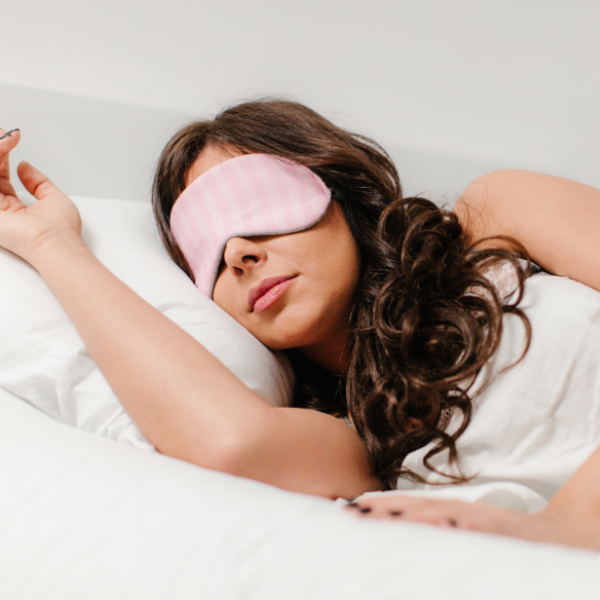The Gut-Sleep Connection
Sleep is an essential function needed for optimal physical and mental well-being. When looking at sleep physiology, there are multiple neural mechanisms at play in regulating the sleep-wake cycle, however, there is an increasing body of evidence demonstrating that the gut microbiome may play a significant role in regulating sleep. This relationship between sleep and the gut microbiome is thought to be bi-directional and research suggests that sleep patterns can also impact the composition and function of the gut microbiome. How this works is thought to be due to the communication network between the gut and the brain, referred to as the gut-brain axis.
The Gut Microbiome's Role in Sleep Regulation
The physiological process of sleep relies on dynamic changes in the central nervous system, such as the production of neurotransmitters such as serotonin, gamma-aminobutyric acid (GABA), norepinephrine, dopamine, glutamate, and melatonin, all of which can help to govern the sleep-wake cycle. Sleep can be divided into two phases, REM (rapid eye movement) and non-REM sleep, which occur three to five times per night in approximately 90-minute cycles.
Studies show that many of the neurotransmitters involved in the sleep-wake cycle and metabolites associated with wellbeing, such as short-chain fatty acids (SCFAs), are produced in the gut and can influence the functioning of the gut-brain axis, and as such could play an essential role in sleep. The impact of the gut microbiome on sleep physiology has been affirmed with research showing a correlation between sleep quality and microbial diversity in the gut.
The gut microbiome has been shown to exhibit diurnal rhythmicity that can fluctuate in line with circadian rhythm, and there are many lifestyle factors that can influence both the sleep-wake cycle and the gut. In fact, studies show that interventions such as light, diet and social interaction can alter the sleep-wake cycle and, subsequently, sleep deprivation and/or restriction can lead to changes in the composition of the gut microbiome, demonstrating the intricate link between sleep and the gut.
Therapeutic interventions for practitioners
Gut microbiota-targeted interventions can, therefore, be useful when practitioners are looking to support sleep. There is evidence to suggest that prebiotics and probiotics, which either feed or provide beneficial species of bacteria, such as bifidobacteria and lactobacillus, can help to improve sleep quality by supporting a more favourable composition of gut microbes.
Other studies have demonstrated that persistent jet lag and clock gene deficiency can diminish the rhythmic nature and composition of the gut microbiota. However, this can be recovered through time-restricted feeding (TRF) specifically targeting prolonged nightly fasting (i.e. restricting food intake primarily to daylight hours) which could also be incorporated into therapeutic strategies.
Increasing the intake of dietary fibre in the diet could also be beneficial in supporting better sleep. This has been attributed to the metabolism of fibre and its impact on both the composition of the gut microbiota and the production of neurotransmitters and SCFAs. Therefore, it is important to support individuals in reaching their daily fibre requirements. This may also include using scientifically proven supplements such as Bimuno which contains prebiotic fibre, shown to stimulate the growth of beneficial bacteria.
Equally, helping to support sleep hygiene through behaviour modification is important for optimizing the quality and quantity of sleep. Recommendations include promoting 7-9 hours of sleep, maintaining a consistent sleep/wake schedule, a consistent bedtime routine, engaging in regular exercise and adopting a mindful practice, such as meditation. In addition, reducing potentially sleep-depriving substances such as caffeine, alcohol and light exposure, close to bedtime can mitigate fragmented poor-quality sleep.
Lastly, low vitamin D levels have been linked to sleep and can be affected by imbalances in the composition of the gut microbiota. Therefore, maintaining optimum vitamin D status may also be considered in a greater treatment plan.
As sleep can be affected by many factors, it is important to address each area via a whole-person approach.
REFERENCES
Baranwal N, Yu PK, Siegel NS. Sleep physiology, pathophysiology, and sleep hygiene. Prog Cardiovasc Dis. 2023 Mar-Apr;77:59-69. doi: 10.1016/j.pcad.2023.02.005. Epub 2023 Feb 24. PMID: 36841492.
Fleet JC. Vitamin D and Gut Health. Adv Exp Med Biol. 2022;1390:155-167. doi: 10.1007/978-3-031-11836-4_9. PMID: 36107318; PMCID: PMC10614168.
Haarhuis JE, Kardinaal A, Kortman GAM. Probiotics, prebiotics and postbiotics for better sleep quality: a narrative review. Benef Microbes. 2022 Aug 3;13(3):169-182. doi: 10.3920/BM2021.0122. Epub 2022 Jul 11. PMID: 35815493.
Han M, Yuan S, Zhang J. The interplay between sleep and gut microbiota. Brain Res Bull. 2022 Mar;180:131-146. doi: 10.1016/j.brainresbull.2021.12.016. Epub 2022 Jan 13. PMID: 35032622.
Matenchuk BA, Mandhane PJ, Kozyrskyj AL. Sleep, circadian rhythm, and gut microbiota. Sleep Med Rev. 2020 Oct;53:101340. doi: 10.1016/j.smrv.2020.101340. Epub 2020 May 13. PMID: 32668369.
Patterson RE, Sears DD. Metabolic Effects of Intermittent Fasting. Annu Rev Nutr. 2017 Aug 21;37:371-393. doi: 10.1146/annurev-nutr-071816-064634. Epub 2017 Jul 17. PMID: 28715993.
Sen P, Molinero-Perez A, O'Riordan KJ, McCafferty CP, O'Halloran KD, Cryan JF. Microbiota and sleep: awakening the gut feeling. Trends Mol Med. 2021 Oct;27(10):935-945. doi: 10.1016/j.molmed.2021.07.004. Epub 2021 Aug 4. PMID: 34364787.
Tang M, Song X, Zhong W, Xie Y, Liu Y, Zhang X. Dietary fiber ameliorates sleep disturbance connected to the gut-brain axis. Food Funct. 2022 Nov 28;13(23):12011-12020. doi: 10.1039/d2fo01178f. PMID: 36373848.
Wang Z, Wang Z, Lu T, Chen W, Yan W, Yuan K, Shi L, Liu X, Zhou X, Shi J, Vitiello MV, Han Y, Lu L. The microbiota-gut-brain axis in sleep disorders. Sleep Med Rev. 2022 Oct;65:101691. doi: 10.1016/j.smrv.2022.101691. Epub 2022 Aug 31. PMID: 36099873.

